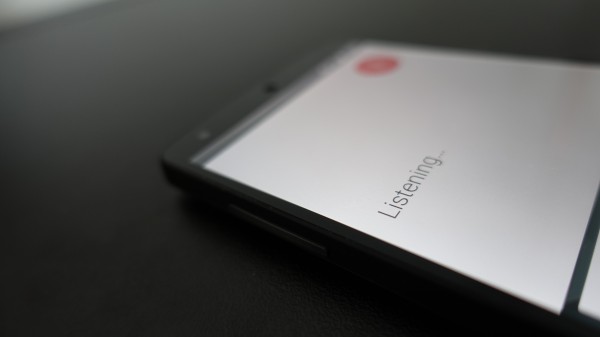Tell Tale Tech: Voices of Concern

Ben Moore / (THE OBSERVER)
February 23, 2015
Voice features on phones have come a long way from the beginning. At first, they were limited to voice searches that were kind of cool, albeit gimmicky, to show off to people. Then they gained additional functionality, like text-to-speech and the ability to set reminders and appointment dates. Now they are getting close to having full-blown personalities. And most tech companies are putting serious resources behind their software.
Siri was not the first, but like most of Apple’s products, showed the potential of the technology. Up until when Siri was introduced in 2011, no one in the tech industry had really tried to fully implement voice features into personal devices. Not surprisingly though, Siri has since become an integral part of the iOS ecosystem.
Google had an earlier set of voice features closely tied to its search engine, which has since evolved and been rebranded as Google Now. For this iteration, Google strayed away from the personality component and instead focused on their specialty: data collection. Google Now draws information from literally everything that is linked to your Google account. If you actually take a look at what they are pulling and what permissions the software requires, you’ll find just how thorough it is.
Microsoft was late to the mobile space, but their recent creation, Cortana, is a technologically impressive hybrid of both Apple’s and Google’s respective offerings. Cortana has similar personality traits to Siri, but looks to incorporate data similarly to Google Now. It will even be integrated on the next desktop version of Windows, and will be able to sync information across all types of devices.
But despite all these advances, there’s still something unsettling about all of it.
Personally, I don’t want a digital assistant, no matter how charming, to know my habits or personal information. Because it’s not really Siri, Cortana or Google Now with whom I’m sharing my life details. It’s Apple, Microsoft and Google. And quite frankly, I don’t want any of them to know more about me than they currently do, especially given their recent track records with protecting customer data.
On another level entirely, none of these are actually “real.” They are only niftily coded software and graphics. In that light, I still find it strange whenever someone asks Siri to tell them a joke. Or when they get Cortana to call them a clever name. I know we all get lonely from time to time, but social interaction, no matter how much anxiety it may cause, should come from other people. Not from a piece of code.
And like all technology, this software is only going to improve. Conversations will flow better. Voice assistants will become more personalized over time. My guess is that automatic responses to notifications are not all too far off either. The illusion will only get better, which might end up accentuating these concerns even further.
Don’t get me wrong. I think some of the capabilities are actually very useful. Setting appointments by voice is usually quicker than typing it out in a calendar app. Replying to a text with your voice is also kind of great, especially when your hands are still frozen solid from that trek to Whole Foods. Same goes for simple web searches.
I’m really not against all of it. All I’m advocating for is a little bit of separation between reality and the vague digital space of these voice assistants. Software should be made for the sake of being useful. Not for the sake of companionship. Because when your phone runs out of battery, it’s like they never existed in the first place. Better start writing that eulogy.












